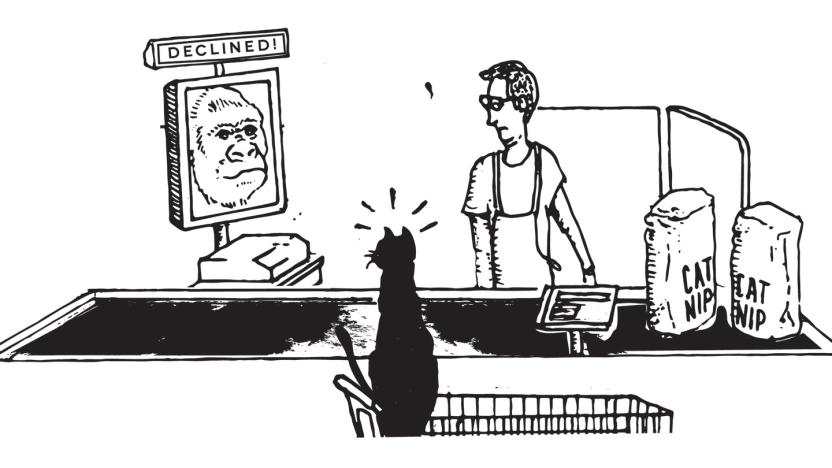deepface
Latest

MasterCard's selfie security: What could possibly go wrong?
When I read about MasterCard's plan to do selfie security with purchases, I wondered what the first massive breach of biometric data is going to look like. Unlike passwords, biometrics such as face mapping, fingerprints and iris scans can't be changed when a database gets popped. Worse, data sold to marketers or snarfed into an authoritarian database isn't revokable. Manny the cat would not approve. Fortunately, MasterCard isn't going to be replacing the password or pin with selfies, but instead wants to make its "Selfie Pay" app part of a two-step security routine when purchases are made or money is withdrawn. MasterCard says users will be required to blink for the app to demonstrate it's a live image. The company plans to roll it out in the U.S., Canada, the U.K. and a few European countries by this summer.

Facebook's face-recognition tech is almost as good at Stallone-spotting as you are
Facebook's long been interested in facial recognition, as the photo tag-suggestion feature that didn't go down too well in Europe shows. The Zuck's social network also gobbled up a face-recognition outfit in 2012, but it's Facebook's AI research team that's made headway recently with technology that's almost as good as us meatsacks at identifying mugs. Known as DeepFace, the system uses a "nine-layer deep neural network" that's been taught to pick up on patterns by looking at over 4 million photos of more than 4,000 people. We're not as up-to-date with complex machine learning techniques as we should be, either, but the main reason DeepFace is so accurate is its method of "frontalization" -- or, creating a front-facing portrait from a more dynamic source image.

